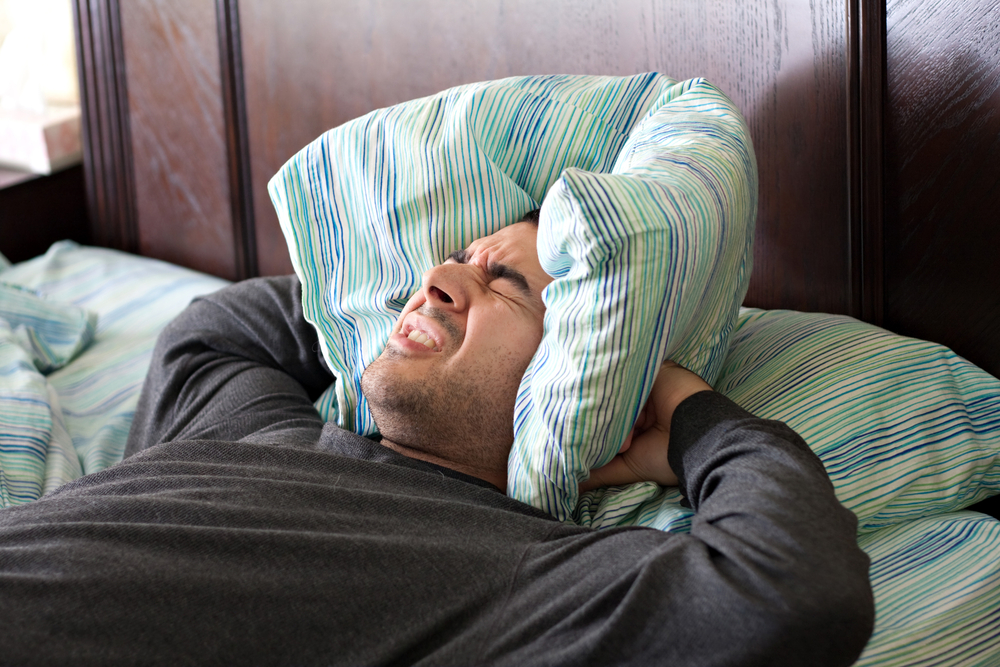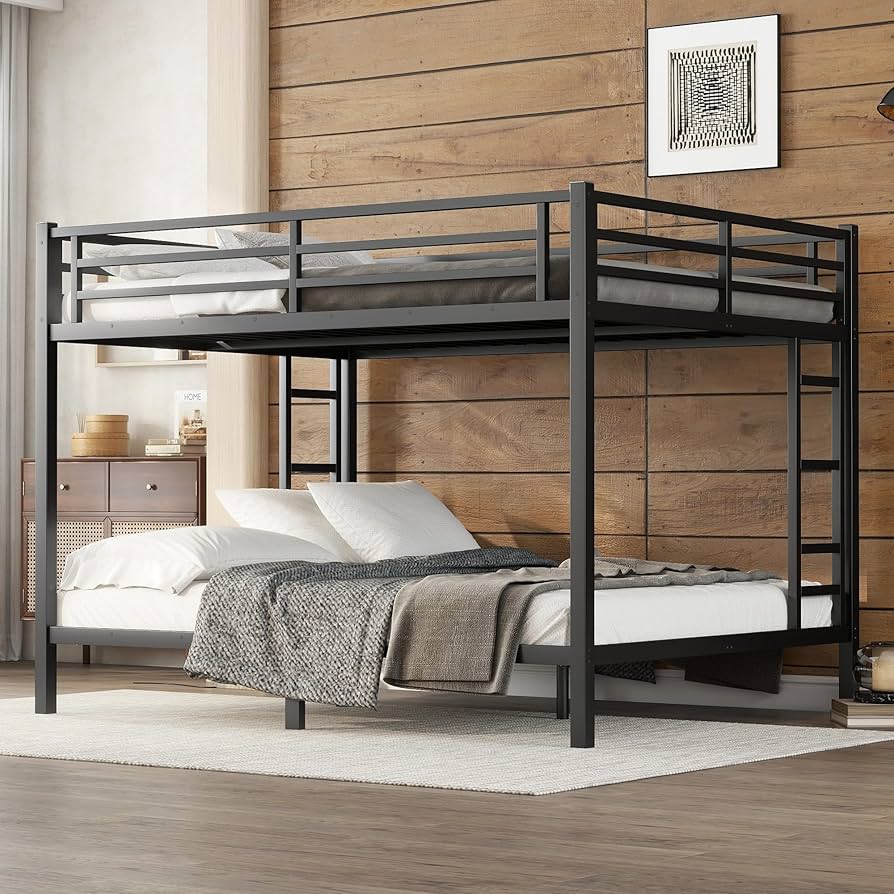You know how tough it can be to fall asleep when loud construction noise is blasting outside your window. The constant banging, drilling, and hammering can make your nights restless and leave you exhausted the next day.
But what if you could learn simple tricks to block out that noise and finally get the peaceful sleep you deserve? You’ll discover easy, effective ways to quiet your mind and create a calm sleeping space—even when construction chaos is right outside.
Keep reading, because better sleep is closer than you think.

Credit: lakesidetitle.com
Challenges Of Sleeping Near Construction
Sleeping near construction sites can be very tough. The noise is loud and often sudden. It can wake you up many times at night. This constant disturbance makes it hard to get good rest. Understanding the challenges helps in finding ways to cope with the noise.
Common Construction Noise Types
Construction noise comes in many forms. Drilling sounds are sharp and piercing. Hammering creates rhythmic loud bangs. Heavy machinery makes a deep, rumbling noise. Trucks and engines add to the constant background sound. These noises are often unpredictable and vary in volume.
Impact On Sleep Quality
Noise interrupts the natural sleep cycle. It reduces deep sleep and increases light sleep. Waking up often stops the body from fully relaxing. Poor sleep causes tiredness during the day. It can also reduce focus and mood stability.
Health Effects Of Noise Disturbance
Long-term noise disturbance can harm health. It may increase stress levels and cause headaches. High noise levels can lead to high blood pressure. Sleep loss weakens the immune system. This makes it harder to fight illnesses.

Credit: www.vybe.care
Preparing Your Bedroom For Noise
Preparing your bedroom for noise helps create a calm space. Construction sounds can disturb sleep and cause stress. Making changes in your room can reduce noise and improve rest. Simple steps can make a big difference in blocking out sound.
Soundproofing Techniques
Soundproofing helps block noise from outside your bedroom. Use weatherstripping on doors to close gaps. Seal cracks around windows with caulk to stop sound leaks. Add thick rugs or carpets to absorb noise from floors. Wall hangings like tapestries or acoustic panels also reduce echoes.
Choosing The Right Windows And Curtains
Windows are a major source of noise entry. Double-glazed windows block more sound than single-pane ones. Use heavy curtains made from dense fabrics to cover windows. Curtains with noise-reducing lining work best. Keep curtains closed at night to help block construction noise.
Furniture Arrangement To Reduce Noise
Place large furniture against walls that face the noise. Bookshelves filled with books act as sound barriers. Position your bed away from windows and doors. Soft furniture like sofas and cushions absorb sound waves. This setup helps create a quieter sleeping area inside your room.
Effective Noise Masking Methods
Construction noise can disturb your sleep and cause stress. Effective noise masking methods help cover up loud sounds. They create a steady, soothing background noise. This makes it easier to relax and fall asleep despite the noise.
White Noise Machines
White noise machines produce a constant sound that blocks sudden noises. They generate a soft hum or static sound. This sound blends with construction noise and reduces its impact. Many people find white noise machines helpful for better sleep. You can adjust the volume to a comfortable level.
Nature Sounds And Music
Nature sounds like rain, ocean waves, or birds can mask loud noises. These sounds are calming and help you relax. Soft music with a slow rhythm also works well. Use playlists designed for sleep or relaxation. These sounds distract your brain from construction noise and ease you into sleep.
Using Earplugs And Headphones
Earplugs block out noise directly and are easy to use. Choose soft, comfortable earplugs for sleeping. Noise-canceling headphones also reduce loud sounds. They work best with calming music or white noise. Both options help create a quiet environment for rest.

Credit: www.amazon.com
Adjusting Your Sleep Routine
Adjusting your sleep routine can help you rest better despite construction noise. Changing small habits creates a calmer bedtime. These changes ease your mind and body, making sleep come faster. A steady routine also trains your brain to expect sleep at certain times. This can reduce the impact of noisy distractions.
Optimal Bedtime Scheduling
Set a consistent bedtime and wake-up time every day. This helps your body clock stay regular. Avoid sleeping late or waking up too early on weekends. Try going to bed earlier to avoid the loudest construction hours. Quiet moments before noise starts are best for falling asleep.
Relaxation Exercises Before Sleep
Try deep breathing or gentle stretching before bed. These exercises calm your nervous system. They reduce stress and lower your heart rate. A calm body can ignore outside noise better. Even five minutes of relaxation helps improve sleep quality.
Limiting Caffeine And Screen Time
Avoid caffeine late in the day. It can keep you awake longer. Stop using phones, tablets, or computers at least one hour before bed. Blue light from screens can trick your brain into staying alert. Instead, read a book or listen to soft music to relax.
Communicating With Construction Teams
Dealing with construction noise can be tough, especially when trying to sleep. Talking directly to the construction teams can help reduce the noise impact. Clear communication often leads to solutions that benefit both sides.
Finding Out Work Schedules
Start by asking the construction team about their daily work hours. Knowing when the loudest work happens helps you plan your sleep better. Some teams have fixed schedules and might share them if asked politely.
Requesting Quiet Hours
Requesting quiet hours during your sleep time can make a big difference. Explain your situation calmly and ask if they can reduce noise during early mornings or late nights. Many teams try to respect nearby residents and may agree.
Collaborating For Noise Reduction
Suggest simple changes like using quieter tools or moving noisy tasks to different times. Offer to work together to find solutions. Showing cooperation makes construction teams more willing to help.
Long-term Solutions For Noise Issues
Dealing with construction noise every night can be very hard. Short-term fixes like earplugs help, but long-term solutions bring real peace. Investing in ways to reduce noise improves your sleep and your health over time. Here are some solid steps to reduce noise from construction around your home.
Home Renovations For Soundproofing
Soundproofing your home cuts noise from outside. Adding thicker windows helps block loud sounds. Sealing gaps around doors and windows stops noise leaks. Installing heavy curtains also softens noise. Walls can get extra insulation to absorb sound. These changes lower noise levels day and night.
Relocation Considerations
Moving away from noisy areas might be needed. Find neighborhoods with less construction activity. Check if the area has quiet hours or noise limits. Living farther from busy roads also reduces noise. Choose a place with natural barriers like trees or hills.
Legal Rights And Noise Regulations
Know your rights about noise in your area. Many places have rules about construction times. Noise limits often apply during night hours. Report violations to local authorities if noise is too loud. Understanding laws helps protect your right to quiet sleep.
Frequently Asked Questions
How Can I Block Construction Noise While Sleeping?
Use earplugs or noise-canceling headphones to block noise. White noise machines or fans also help mask construction sounds. Closing windows and using heavy curtains can reduce outside noise intrusion effectively.
What Are The Best Sleep Aids For Noisy Environments?
Earplugs, white noise machines, and calming music are top sleep aids. These help drown out construction sounds and create a peaceful atmosphere for better sleep.
Is It Helpful To Change My Sleep Schedule During Construction?
Yes, adjusting your sleep schedule can help avoid peak noise hours. Try sleeping earlier or later when construction noise is minimal for undisturbed rest.
Can Natural Remedies Improve Sleep Despite Construction Noise?
Yes, herbal teas like chamomile and lavender promote relaxation. Practicing meditation or deep breathing before bed also aids in falling asleep faster amid noise.
Conclusion
Sleeping with construction noise can be tough but not impossible. Use earplugs or white noise to block sound. Close windows and doors to reduce noise inside. Try relaxing routines before bed to calm your mind. Stay consistent with your sleep schedule for better rest.
Small changes make a big difference in sleep quality. Patience helps as your body adapts to noise. Quiet nights will come again. Keep trying these simple tips to sleep better despite noise.
About
Amos Frank is a distinguished figure in the world of Diy sleep, with a decade of expertise creating innovative and sustainable Diy solutions. His professional focus lies in merging traditional sleep with modern manufacturing techniques, fostering sleep that are both practical and environmentally conscious. As the author of diy, Amos Frank into the art and science of sleep-making, inspiring artisans and industry professionals alike.
Education RMIT University
(Melbourne, Australia) Associate Degree in Design (Amos Frank) Focus on sustainable sleep, industry-driven projects, and practical sleep. Gained hands-on experience with traditional and digital manufacturing tools, such as CAD and CNC software.
Nottingham Trent University
(United Kingdom) Bachelor’s in sleepenify.com and sleep makeing (Honors) Specialized in product sleep with a focus on blending creativity with production techniques. Participated in industry projects, working with companies like John Lewis and Vitsoe to gain real-world insights.
Publications and Impact
In diy, Amos Frank his insights on indoor sleep processes, materials, and strategies for efficient production. His writing bridges the gap between artisan knowledge and modern industry needs, making it a must-read for both budding sleep and seasoned professionals.
